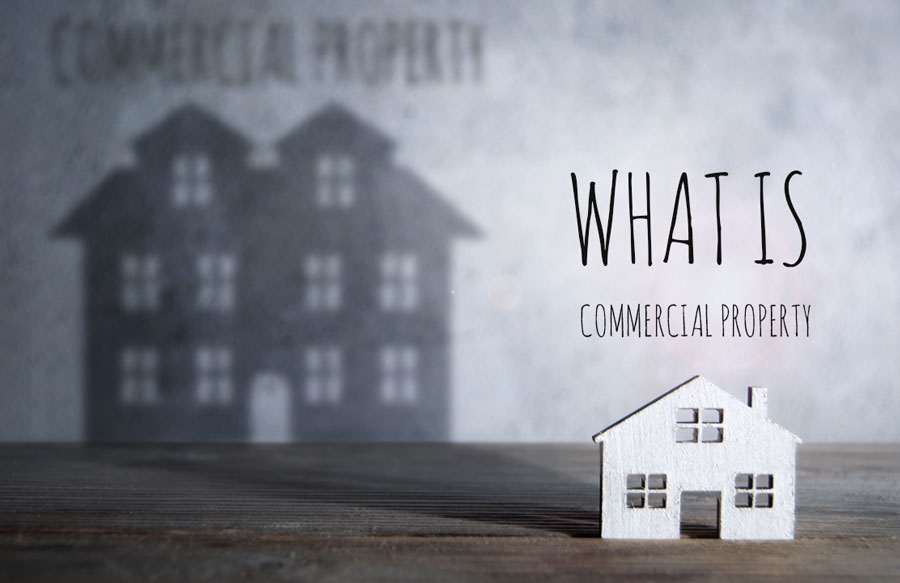Commercial properties are usually more lucrative and higher return than residential properties. They generate more money for their owners and can have less of a hassle with the upkeep. People who live in an area will often prefer a commercial property over one that is residential. This is because they have much less to do with the upkeep of the property, which can be a full-time job when it comes to residential properties. Businesses in an area often want to be housed in commercial property because they need more space than what would be available to them in a residential building, but don’t want to deal with the hassle of renter’s rights laws or restrictions on how they can use the space inside of it. For newbie, what is commercial property anyway?
Commercial property is a type of property that is used for commercial purposes. Obviously. Typical commercial properties are office buildings, shopping malls and hotels. Commercial property is an investment class that can offer stability, liquidity, and potential appreciation over time. It can help offset the risk associated with non-income producing assets like stocks or bonds by providing income in the form of rent or lease payments to investors in the form of dividends or interest payments.
For the same reason, where you find REITs only offers commercial property.
See also – Real Estate Investment Trust. An alternative to owning a property.
Back before the pandemic hits, commercial properties are the asset class that seasoned investors sought after. But these days, we could see vacancies in an ample of commercial properties e.g. offices, malls, retail shop lots, hotels etc. In fact, EdgeProp reported the following:
According to Bank Negara Malaysia (BNM) Annual Report 2020, online retail sales nearly doubled during the Covid-19 pandemic. The index averaged at 33% between March and December last year, up from about 22% during the start of 2020 – based on data by the Department of Statistics Malaysia. – EdgeProp
There is nothing we can do during this pandemic outbreak. But let’s rewind back to the time where commercial is attractive and lucrative to investors.
Why is Commercial Property So Lucrative?
Commercial property can offer a higher return than residential properties because the cost of commercial (some) space is lower and they also appeal to an international audience. If you’re already an investor in the residential space, then it’s time to explore the commercial market!
Investing in commercial property is not for everyone. There are many reasons why people prefer to invest in commercial properties over residential properties:
- Commercial property investments are easier to manage and can be easily rented out to generate passive income.
- Commercial property values tend to hold up better in downturns and recover more quickly after a recession, making them a safer bet for some investors. Commercial property values also tend to grow at a faster pace than residential values.
- Commercial properties are more versatile and can offer different lease options, which makes them more attractive for investors that want diversified investments.
- Lots of first-time investors or people looking to buy their first investment property often invest in commercial properties e.g. office space, SoHo etc; since they are usually cheaper than residential properties on the whole.
Commercial Property is Not For Everyone
The things to consider when investing in commercial properties are as follows (especially in Malaysia):
- Commercial property is not protected the same way as residential property
Residential property in Malaysia is protected under Housing Development Act (HDA). In the event the developer unable to complete the project on time or at all, then the buyer will be compensated and covered under HDA. This is not the same for commercial property as the name implies, it is for commercial and investment in nature. - No Standardisation to the SPA
The Sale and Purchase Agreement in commercial property vary from developers to developers. There is no requirement or set of standard that developers must follow. Unlike residential property under HDA, the SPA is standardised and commonly known as Schedule H for high rise property and Schedule G for residential property. - Vacant Possession
This is related to the terms in the SPA as well. In commercial property, it is legal to give vacant possession based on CPC stage. CPC is Certificate of Practical Completion where the building or the subject property is practically structural completed. A structural completion doesn’t mean safe for occupancy. For safe occupancy in the building, the developer must obtained Certificate of Completion and Compliance (CCC) from the architect after signing off by all relevant authorities.Many first time investors caught into this situation where CPC is issued but CCC is not. The building is completed but unable to use due to the absent of CCC. To make things worst, the buyer need to start serving the loan but unable to rent it out.Note:
Most banks draft their loan agreement based on the terms contained in the SPA. Thus, when the SPA indicated the vacant possession is on CPC, so is the commencement of instalment. - Capital Upfront
Commercial property requires huge upfront investment. This is due to typical bank financing between 80% – 85% loan to value. If the shop lot value at RM1,000,000 then the buyer would need to fork out RM200,000 upfront. That is yet to include other costs e.g. legal fees, valuation fee etc.See also – What is Property Valuation - How Reputable is the Developer?
Developers’ reputation is very important. This is especially you are buying off-plan (under construction) project. For commercial property, I would strongly suggest to buy from subsale. This is due to the fact that the risk is much lower. It is better to be safe than sorry. Unless the developer is a reputable developer, then you can consider to buy off-plan.Do take note that almost all commercial properties take time to build tenants crowd. This means you will need to have strong holding power.
Conclusion
Commercial property is a complicated asset class and there are many different kinds of commercial property transactions. This means that commercial property lawyers need to be well-versed in a wide range of legal areas, because different transactions involve different legal issues.
The lawyers have to deal with contracts which are often less standardized than for residential properties. Commercial leases can be written in any way that landlord and tenant want to, usually without reference to any standard form agreements.
The leases also often include an option for renewal or extension terms, but it is not unheard of for tenants on long-term leases to find themselves unable to renew their lease when it expires. This is due to the landlord could find higher bidder for the rental to the units.
And that is where the value to the commercial properties that most investors are looking for.









